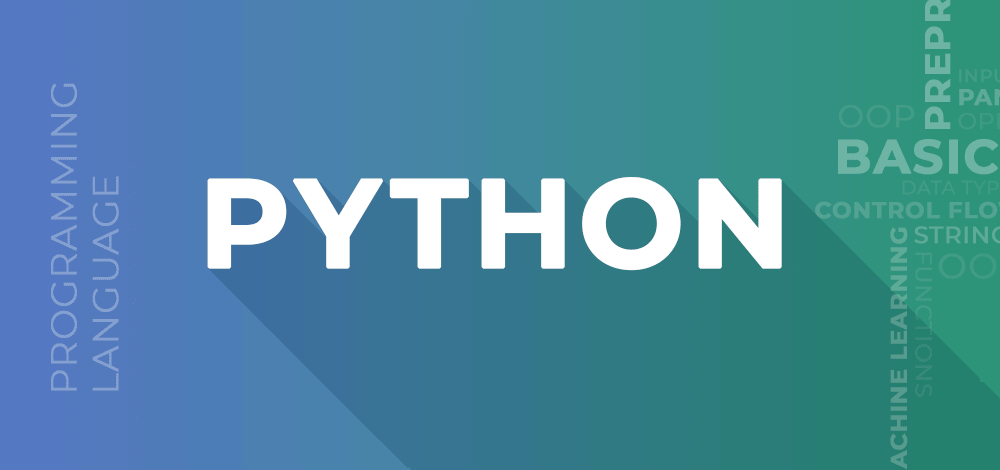In the world of programming, iteration is a fundamental concept that allows us to perform repetitive tasks efficiently. With its rich set of iteration techniques, Python provides programmers with powerful tools to master the art of iteration. In this comprehensive guide, we will explore the basics of iteration, delve into Python’s unique approach to iteration, and dive into advanced iteration techniques that will take your Python programming skills to the next level.
Table of Contents
Understanding the Basics of Iteration
Before we explore Python’s iteration techniques, let’s first understand the essence of iteration. In programming, iteration refers to the process of executing a set of instructions repeatedly until a specific condition is met. This iterative approach is essential for performing tasks that require repetitive actions, such as processing large datasets or performing computations on a collection of items.
Why is iteration important in programming? Iteration allows us to automate repetitive tasks, reduce code duplication, and make our programs more efficient. With the power of iteration, we can tackle complex problems by breaking them down into smaller, more manageable steps.
Imagine you have a dataset with thousands of records that need to be processed. Without iteration, you would have to write the same code over and over again for each record. Not only is this time-consuming and prone to errors, but it also makes your code difficult to maintain. However, with iteration, you can write a single block of code that will be executed for each record, saving you time and effort.
Iteration also allows us to handle dynamic situations where the number of repetitions is not known in advance. For example, let’s say you want to write a program that calculates the average of a list of numbers. Without iteration, you would have to write separate code for each list length, which is not practical. However, with iteration, you can handle lists of any length by simply iterating through the elements and summing them up.
Another benefit of iteration is code readability. When you use iteration, your code becomes more concise and easier to understand. Instead of writing repetitive code, you can use loops to express the repetitive nature of the task, making your code more elegant and maintainable.
Furthermore, iteration allows us to iterate over complex data structures, such as nested lists or dictionaries. With nested iteration, we can access and process each element of the data structure, even if it has multiple levels of nesting. This flexibility is crucial when working with real-world data that often comes in complex formats.
Overall, iteration is a fundamental concept in programming that empowers us to solve a wide range of problems efficiently. It enables us to automate repetitive tasks, handle dynamic situations, improve code readability, and work with complex data structures. By mastering iteration techniques, you can become a more proficient programmer and tackle even the most challenging programming tasks with ease.
Python’s Approach to Iteration
Python, known for its simplicity and readability, takes a unique approach to iteration. The philosophy behind Python’s iteration techniques is grounded in the idea of writing clean and concise code that is easy to read and understand.
Understanding the syntax of Python’s iteration constructs is essential to mastering iteration in Python. Python offers several ways to iterate over sequences, such as lists, tuples, and strings. The most common iterations tools in Python are the ‘for’ loop, the ‘while’ loop, list comprehensions, and generator expressions.
The ‘for’ Loop in Python
The ‘for’ loop in Python allows us to iterate over a sequence of items, such as a list or a string. This loop iterates over each item in the sequence and executes the specified block of code for each iteration. It provides an intuitive and concise way to process each element in a sequence without the need for manual indexing.
The ‘while’ Loop in Python
Similar to other programming languages, Python also supports the ‘while’ loop, which allows us to repeatedly execute a block of code until a certain condition is met. The ‘while’ loop performs actions as long as the condition is true. This type of loop is particularly useful when we don’t know in advance how many times the loop needs to iterate. It provides flexibility and control over the loop execution based on specific conditions.
The ‘enumerate’ function in Python
The Python enumerate function is a powerful tool that simplifies the iteration process by combining the functionality of a loop with the ability to track the current iteration count and the corresponding values from an iterable object. By using this function we can easily access both the index and the value of each element within the loop. This feature proves especially beneficial when we need to perform operations that require knowledge of the element’s position within the iterable.
List Comprehensions in Python
List comprehensions are a concise and elegant way to create lists based on existing lists or other iterable objects. They provide a powerful approach to iterate over a sequence, apply transformations, and filter elements, all in a single line of code.
The general syntax of a list comprehension is:
[expression for item in sequence if condition]
This structure allows us to generate a new list by applying an expression to each item in the sequence that satisfies a given condition. List comprehensions offer a concise and readable way to perform complex operations on lists with minimal code.
Generator Expressions in Python
Generator expressions share a similar syntax with list comprehensions but produce a generator object instead of a list. Generators are iterable objects that generate values on-the-fly, saving memory and improving performance.
A generator expression is defined within parentheses and follows a similar structure to list comprehensions:
(expression for item in sequence if condition)
By using generator expressions, we can efficiently generate large sequences of values without storing them in memory all at once. This makes them suitable for working with extremely large datasets or when memory optimization is a priority.
Advanced Iteration Techniques in Python
Python goes beyond the basics of iteration and provides us with advanced techniques to take our iteration skills to the next level. By utilizing iterators, generators, and the ‘itertools’ module, we can unlock even more power and flexibility in our Python programs.
Iterators in Python
In Python, an iterator is an object that implements the iterator protocol, allowing us to iterate over its elements sequentially. Iterators have a special method called ‘__next__()’ that returns the next element in the sequence.
By leveraging iterators, we can create custom iterable objects and iterate over them using the ‘for’ loop. This gives us full control over the iteration process and allows us to design custom iteration patterns tailored to our specific needs.
Generators in Python
Generators are a special type of iterator that can be defined using generator functions or generator expressions. They are a compact way to create iterable objects without the need to implement the complete iterator protocol.
Generator functions in Python use the ‘yield’ keyword to define the value returned by each iteration. This unique feature gives us the ability to pause and resume the execution of the function, allowing us to create efficient and memory-friendly iterators.
Using the ‘itertools’ Module
The ‘itertools’ module in Python provides a comprehensive set of tools for advanced iteration tasks. It offers functions that can help us generate permutations, combinations, and Cartesian products, among others.
With the ‘itertools’ module, we can easily solve complex problems that involve iterating over multiple sequences, creating combinations, or generating all possible permutations. This module is a valuable resource for any Python programmer seeking to unleash the full potential of iteration.
With its extensive set of iteration techniques and its focus on readability and simplicity, Python offers a rich ecosystem for mastering the art of iteration. By understanding the basics, exploring Python’s unique approach, and diving into advanced iteration techniques, you can unlock the full potential of Python’s iteration capabilities and become a proficient Python programmer.
So, whether you are a beginner looking to grasp the fundamentals of iteration or an experienced programmer wanting to enhance your skills, this comprehensive guide will equip you with the knowledge and tools to become a master of iteration in Python.












